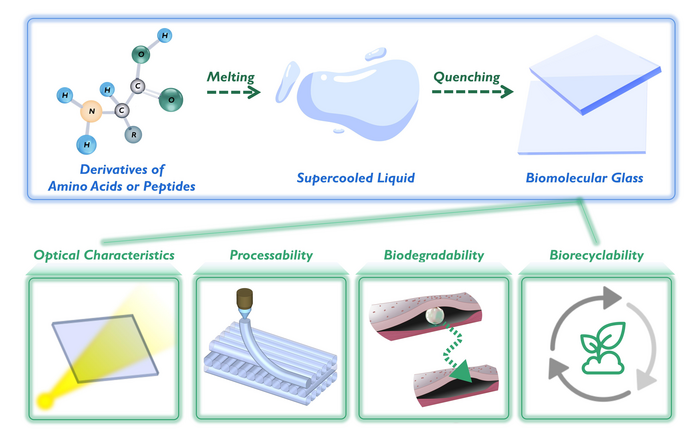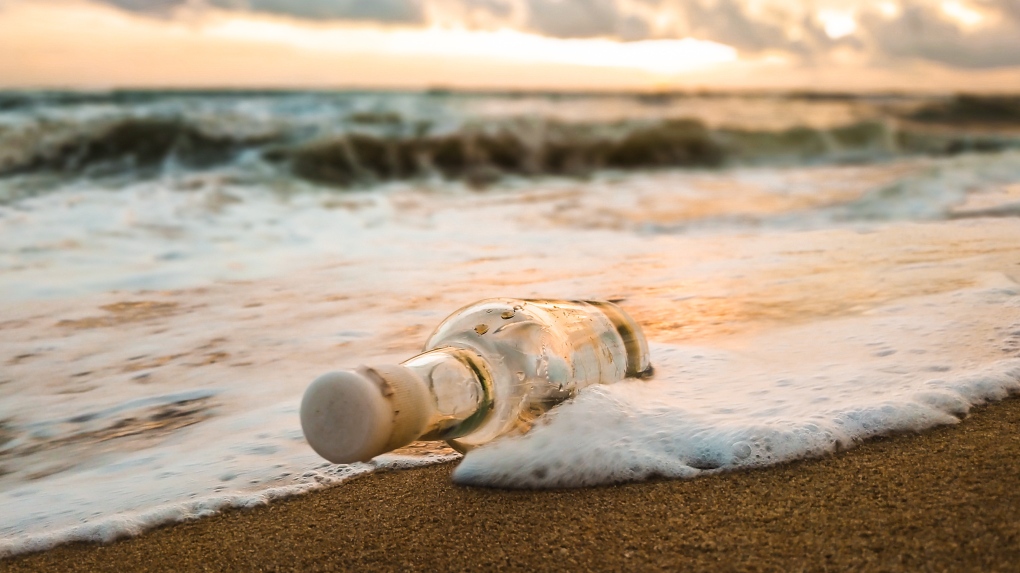
Quebec nurse had to clean up after husband's death in Montreal hospital
On a night she should have been mourning, a nurse from Quebec's Laurentians region says she was forced to clean up her husband after he died at a hospital in Montreal.
Researchers have figured out a new way to make glass that will decompose on its own and not harm the planet.
In a new study published in Science Advances on Mar. 17, a group of researchers developed a "family" of eco-friendly glass from amino acids or peptides.
According to the study, the new biodegradable or biorecyclable glass has "a minimal environmental footprint."
Some traditional glass is made from non-biodegradable materials like methyl methacrylate.
Using a "heating-quenching" technique, researchers were able to chemically modify amino acids to form a similar glass product. Further testing was done on the glass' kinetic and thermodynamic abilities.
Although the research has demonstrated the ability to create biodegradable glass, researchers say mass production will not happen anytime soon. Schematic diagram of the construction of biomolecular glass and its unique properties. (XING Ruirui)
Schematic diagram of the construction of biomolecular glass and its unique properties. (XING Ruirui)
"The concept of biomolecular glass, beyond the commercially-used glasses or plastics, may underlie a green-life technology for a sustainable future," YAN Xuehai, a professor from the Institute of Process Engineering of the Chinese Academy of Sciences, said in the press release accompanying the study. "However, the biomolecular glass is currently in the laboratory stage, and far from large-scale commercialization."
More testing is needed to ensure the eco-friendly glass does not decompose at high temperatures.

On a night she should have been mourning, a nurse from Quebec's Laurentians region says she was forced to clean up her husband after he died at a hospital in Montreal.
A North Bay, Ont., lawyer who abandoned 15 clients – many of them child protection cases – has lost his licence to practise law.
Members of the Bank of Canada's governing council were split on how long the central bank should wait before it starts cutting interest rates when they met earlier this month.
Brad Marchand scored twice, including the winner in the third period, and added an assist as the Boston Bruins downed the Toronto Maple Leafs 4-2 to take a 2-1 lead in their first-round playoff series Wednesday
Cuba's foreign affairs minister has apologized to a Montreal-area family after they were sent the wrong body following the death of a loved one.
Mounties in Nanaimo, B.C., say two late-night revellers are lucky their allegedly drunken antics weren't reported to police after security cameras captured the men trying to steal a heavy sign from a downtown business.
The federal government's proposed change to capital gains taxation is expected to increase taxes on investments and mainly affect wealthy Canadians and businesses. Here's what you need to know about the move.
Canada's Deputy Prime Minister Chrystia Freeland was among the 1,700 delegates attending the two-day First Nations Major Projects Coalition (FNMPC) conference that concluded Tuesday in Toronto.
The daughter of a New Brunswick man recently exonerated from murder, is remembering her father as somebody who, despite a wrongful conviction, never became bitter or angry.

A property tax bill is perplexing a small townhouse community in Fergus, Ont.
When identical twin sisters Kim and Michelle Krezonoski were invited to compete against some of the world’s most elite female runners at last week’s Boston Marathon, they were in disbelief.
The giant stone statues guarding the Lions Gate Bridge have been dressed in custom Vancouver Canucks jerseys as the NHL playoffs get underway.
A local Oilers fan is hoping to see his team cut through the postseason, so he can cut his hair.
A family from Laval, Que. is looking for answers... and their father's body. He died on vacation in Cuba and authorities sent someone else's body back to Canada.
A former educational assistant is calling attention to the rising violence in Alberta's classrooms.
The federal government says its plan to increase taxes on capital gains is aimed at wealthy Canadians to achieve “tax fairness.”
At 6'8" and 350 pounds, there is nothing typical about UBC offensive lineman Giovanni Manu, who was born in Tonga and went to high school in Pitt Meadows.
Kevin the cat has been reunited with his family after enduring a harrowing three-day ordeal while lost at Toronto Pearson International Airport earlier this week.
 Traditional glass is made from non-biodegradable materials like methyl methacrylate.(Pexels/ Nguyễn Thanh Ngọc)
Traditional glass is made from non-biodegradable materials like methyl methacrylate.(Pexels/ Nguyễn Thanh Ngọc)